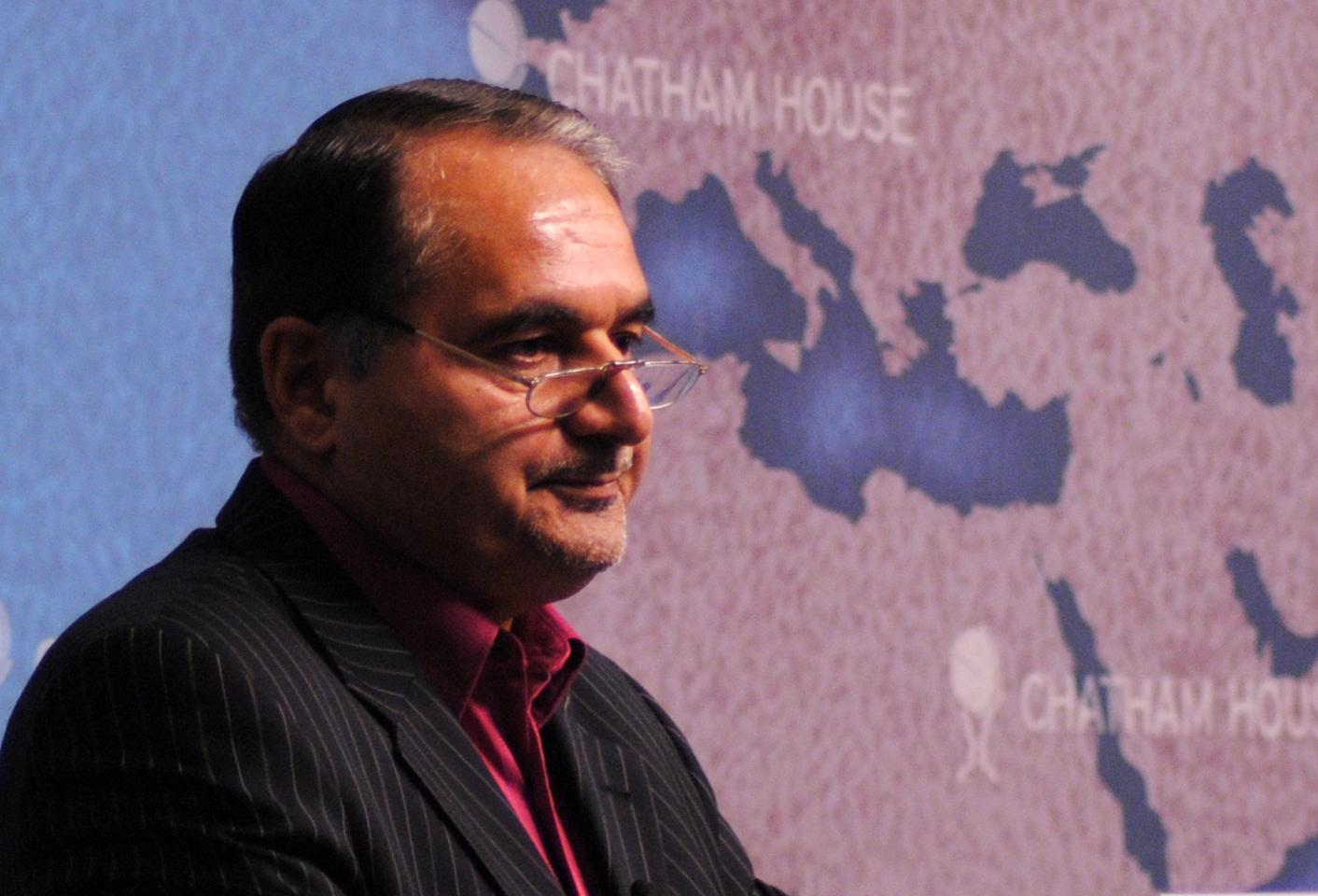Shortly before Thanksgiving, twelve members of Congress’s House Education and Workforce Committee opened an investigation into former Islamic Republic of Iran diplomat, Seyed Hossein Mousavian, who now works as an academic at Princeton University. Focus on Western Islamism (FWI) played a role in bringing about the launch of this investigation.
Mousavian served as the Islamic Republic’s ambassador to Germany from 1990 to 1997. He held this post when the regime used its embassy in Germany to carry out the 1992 assassination of four Iranian dissidents in Berlin. Before and after the assassinations, Mousavian held a number of high ranking positions in the Tehran regime.
Despite his past, Mousavian claims he no longer works in any capacity for the regime, pointing to treason and espionage charges against him and current legal issues that could lead to his arrest if he returned to Iran. All in all, he attempts to portray himself as a victim of the regime and a promoter of peace.
“My work is just an academic work and I have nothing to do with the US or the Iranian or any other government,” he claims. In September, Mousavian, wrote to FWI, claiming that he no longer works for the Tehran regime and that he works as an academic to promote peace.
Mousavian’s bio at Princeton suggests otherwise, listing him as vice president from 2005-2009 of the Iran-based Center for Strategic Research for International Affairs, which states it has the “heavy responsibility not only within the country but in the Islamic world to preserve and reinforce the Islamic Republic of Iran and Islamic values.” Mousavian obtained a visa to the U.S. in 2009, shortly before beginning his work at Princeton.
The congressmen sent a letter on November 16 to Princeton’s president demanding answers about the school’s hiring of Mousavian. They also asked if foreign funding to the school played a role in his hiring, and if they know of any communications between Mousavian and the mullahs. In their letter to Princeton, lawmakers cited an article published in September about Mousavian’s efforts to manipulate media coverage of his career in the United States.
Congresswoman Lisa McClain, a Republican from Michigan, and Congressman Jim Banks, a Republican from Indiana, led the letter.
“The Islamic Republic of Iran is not our friend. They sympathize with Hamas and cheer for the destruction of the U.S.,” wrote Rep. McClain on X (formerly Twitter). “In no world should we ever allow a former member of the regime to teach young American minds in college. Shame on Princeton.”
Mousavian’s work in the U.S. has encompassed more than influencing students at Princeton. He has sought to influence military personnel as well.
Mousavian spoke at a national security conference hosted by the U.S. Strategic Command (STRATCOM) in August. His speech at STRATCOM “said nothing about the numerous heinous acts committed by the regime he has worked for either at home or abroad, falsely alleging that the anti-U.S. positions advocated by the ‘Deep State’ in Iran has the support of the Iranian nation,” reported Mehrdad Khonsari, a former Iranian diplomat.
The committee’s letter to Princeton comes on the heels of House and Senate members of the Armed Services committees raising concerns about Mousavian’s presence as a speaker at STRATCOM.
“The decision to invite Mousavian to address its Deterrence Symposium calls into question the judgement of any personnel involved in such a decision, and leads us to question whether the command is appropriately focused on meeting the rapidly growing strategic threats to the United States and its allies,” the letter stated.
“It is absolutely disgraceful that Princeton would have ever hired anyone associated with the Iranian regime,” wrote Senator Ted Cruz, R-TX, on his personal Twitter account, adding, “Princeton students are absolutely justified in worrying for their safety.”
Princeton has accepted funds in the past from the Alavi Foundation, a U.S. nonprofit successfully prosecuted by the Department of Justice for acting as a front group for the Iranian regime. The New Jersey-based Ivy League school has also received fire for hiring former U.S.- Iran envoy, Rob Malley, after the State Department placed him on leave for allegedly mishandling classified material.
Two of the school’s graduate students have been imprisoned by the regime or its proxies reportedly after Princeton had approved the students’ field work. Xiyue Wang, a former grad student at Princeton, settled a lawsuit in August in which he claimed “severe personal injuries and other irreparable harm” due to Princeton’s “reckless, willful, wanton, and grossly negligent acts” after the Islamic Republic arrested him while researching in Iran. The regime imprisoned him for over three years.
Similarly, a regime-backed militia is believed to be holding Princeton graduate student, Elizabeth Tsurkov, kidnapped during her research in Iraq. Her sister, Emma Tsurkov, claims Princeton pre-approved Elizabeth’s field work and is doing little to help with her release.
“Princeton did not use its leverage, Mousavian, to get me out and it is not using its leverage to get Elizabeth Tsurkov out,” Wang recently told Iran International, adding, “Based on my understanding that Mousavian did not help me I would guess he is not working to help Tsurkov.”
Per Rule X of the U.S. House of Representatives, the Education and Workforce Committee has oversight authority over these matters. The congressmen have given Princeton six weeks to respond to their November 16 letter. Mousavian has not yet responded to a request for comment.
Susannah Johnston is Focus on Western Islamism’s investigative reporter.
